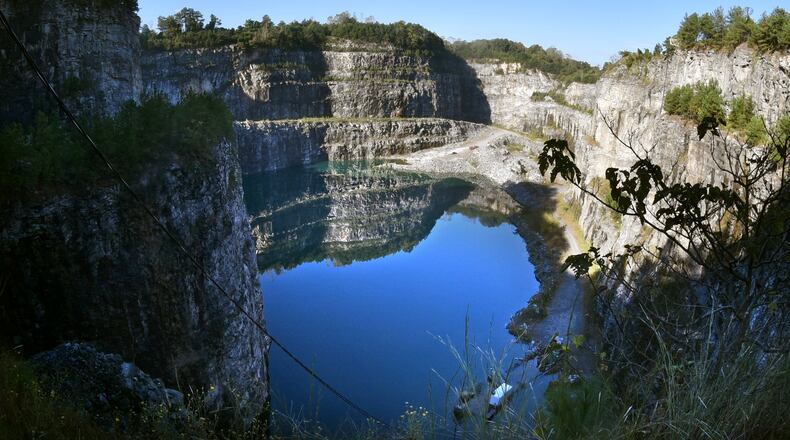The project that will provide Atlanta with an insurance policy against contamination of its drinking water source gets started next week with a bang.
Make that a blast — about 160 of them over the next four months.
Crews on April 6 will begin blasting through granite at a city quarry that will eventually hold 2.4 billion gallons of raw drinking water. That reserve is enough to provide 1.2 million people with water for a minimum of 30 days, should the Chattahoochee River ever be off limits due to contamination or drought.
Right now, the city has only about three days of raw water in reserve for all of Atlanta, which includes about 475,000 residents, the busiest airport in the world and corporate giants such as Coke, UPS, Delta and The Southern Company. A recent study estimated the cost of running out of drinking water at $100 million per day.
It’s that kind of potential catastrophe that makes the $300 million quarry project critical to the city’s future, JoAnn Macrina, commissioner of Atlanta’s Department of Watershed Management, told The Atlanta Journal-Constitution on Tuesday.
Macrina said it has happened elsewhere as recently as 2014, when a chemical spill in the Elk River made water off limits for five days to residents, schools and businesses in a nine-county area around Charleston, W.V.
“Incidents like West Virginia — it’s real,” Macrina said. “This project will ensure that the people of Atlanta can continue on with their daily lives” if a similar event were to happen here.
The quarry is the top project in watershed's $1 billion, five-year capital improvement plan, and is scheduled for completion in 2017. A majority of the projects in the plan will be funded by the Municipal Option Sales Tax, passed by voters earlier this month, along with water and sewer rates. The MOST, a penny sales tax that is expected to raise $750 million over four years, will fund about one-third of the tunnel.
The project is massive by every imaginable scale: Crews will bore a five-mile long tunnel through granite, from the quarry to the river, passing the Hemphill Water Treatment Plant along the way. The $10 million deep-bore tunneling machine is being constructed in Ohio specifically for this project, and will be moved to Georgia this summer on 70 semi-trucks, then assembled inside the quarry.
The drill bit is made of diamond and will be 12 feet in diameter. It will create a hole 10 feet wide.
Atlanta will own the machine after the project is complete.
Councilman Alex Wan said the project is a huge investment for the city — and worth it.
“The lack of water can choke off a metropolis faster than anything,” Wan said. “It is a significant investment, but I think the insurance and safety it will provide the city is commensurate with that investment.”
Councilman Howard Shook agreed: “What’s at stake here is worldwide headlines.”
Still, Shook has previously raised concern over the city’s plan to buy the machine, noting the failure of a bigger deep-bore tunneling machine nick-named Bertha in Seattle.
The councilman said he eased off the objection after it became clear the machine was being built to the contractor’s specifications and that the liability for any failure would rest with them. Still, he said, the machine won’t be worth much when the project is finished, because it will have to be completely refurbished for use on another project.
“We’re going to own a piece of junk when it’s over that we’ll use as yard art, or something,” he said.
But the drilling comes later, starting in September.
On Friday, crews will begin using dynamite to blast four, 400-foot deep shafts down to where the tunnel will be drilled. Each blast will create a 10-foot crater in the granite. Four shafts will be blasted out to provide air in tunnel for crews operating the drilling machine.
About the Author
Keep Reading
The Latest
Featured



